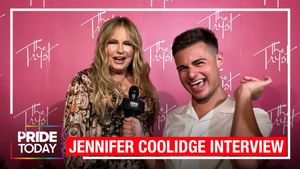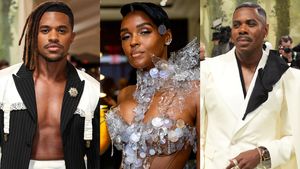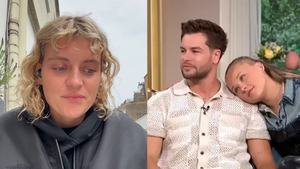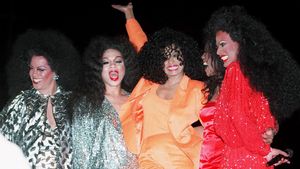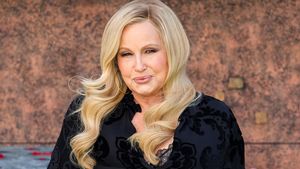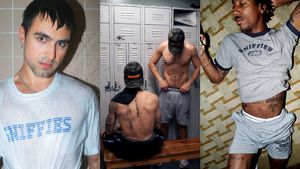 Looking is quality television. Centered on three gay men seeking fulfillment in San Francisco, its characters are recognizable and its situations mostly plausible (*cough* weird hooker subplot *cough*). The no-frills cinematography captures the beautiful grit of city life, while the music is thoughtful, sometimes beautiful, and occasionally funny -- closing a languid episode with Morrissey's "Everyday Is Like Sunday" was a nice touch. Some may call it boring, but subtlety is Looking's strongest asset.
Looking is quality television. Centered on three gay men seeking fulfillment in San Francisco, its characters are recognizable and its situations mostly plausible (*cough* weird hooker subplot *cough*). The no-frills cinematography captures the beautiful grit of city life, while the music is thoughtful, sometimes beautiful, and occasionally funny -- closing a languid episode with Morrissey's "Everyday Is Like Sunday" was a nice touch. Some may call it boring, but subtlety is Looking's strongest asset.
As the slow-burning engine on Looking starts humming, its various themes are coming into focus. Its most enduring subject -- which is sold in the show's tagline, "Find something real" -- is the attempt by urban gay men to challenge their culture, and their biology, by committing to and maintaining a fulfilling romantic relationship. The show also contains a nascent exploration of class warfare that's hopefully further explored in season two, since San Francisco is growing unaffordable for anyone but tech executives and George Lucas (not different from similar gay meccas like New York and L.A. pricing out everyone but celebs and trust fund babies).
But maybe the most fascinating big-picture issue of Looking is how gay men see themselves. More specifically, executive producers Michael Lannan and Andrew Haigh want to know whether gay guys are comfortable enough in their skin to be less than masculine, and whether some are so filled with self-hate that they judge feyness with not just indifference, but derision and disgust.
The main characters are mostly masculine types, especially Dom Juan and Asshole Agustin. The writers haven't challenged them too much when it comes to their take on gay men who, say, wear makeup or regularly quote AbFab. It's the protagonist, Patrick (played by Emmy-worthy Jonathan Groff), who's really conflicted about himself and his role in the world. The video game designer's discomfort with his masculinity, or his own perceived lack thereof, was suggested in episode three when he felt the need to justify why he plays most games as female avatars. He also thought he could suss out his boss's orientation through hand gestures and affectations (his gaydar turned out to be right).
The internalized gay panic came to a head in the most recent episode. Hanging with his friends and new boyfriend, Patrick is teased about his gay-sounding voicemail message. Instead of laughing it off, Patrick jumps up and minces for the crowd. He skips around, loosens his wrist muscles, and lisps without abandon. The friends and BF uncomfortably laugh, though Agustin's somewhat feminine partner smartly yells, "Own it." Patrick's embarrassed and embarrassing display goes on for so long that it's painful to watch.
Make no mistake: the producers, writers, and director knew what they were doing with that scene. It wasn't random or done at the expense of effeminate gay men. Patrick was the one who looked like an idiot, not gay guys who can't pronounce the letter s. The writers are hopefully thinking of something to throw at Patrick, a somewhat uptight young guy from Colorado, that will make him confront his internalized homophobia.
It's a fascinating subject so little explored in our own media, mostly because we've had to concern ourselves with not dying of AIDS, being murdered in the streets, or having our rights ripped from us by filthy politicians. Now that those horrors our becoming less prevalent, we have the luxury to look at subjects like gay self-worth. Our ideas of ourselves have been so warped by heterosexist BS it's hard to know how much of our personalities are reactions to those gender conventions. Some gay men respond to our society's demand for male masculinity by taking it to the extreme and aping a modern version of the Marlboro Man, going to the gym nine times a week and demanding "masculine-only" when it comes to the Grindr partners, doctors, or baristas. Others instead subvert those mores, sticking a middle finger at convention by adopting an outsized feminine persona. Many of us don't give a conscious thought to how we act on a daily basis, but to pretend our homophobic world hasn't shaped our identities is ignorant. Gay men simply don't speak in the same manner at High Tea as they do during board meetings.
How much conformity is acceptable? The people behind Looking, many of whom are gay, likely don't have the answer. Another scene in that same episode indicated they may have some hang-ups themselves when it comes to the subject of gay men and masculinity. Dom and his friend/crush/business partner Lynn make a pitch to two older gay gentlemen they hope will invest in Dom's dream restaurant. After one of the potential investors refers to legendary LGBT activist Jose Sarria as "Mama Jose," Dom smiles, laughs, and says, "Sounds like a cheap taco joint!" The couple snaps at Dom, nearly belittling him. The reaction to the joke was outsize and the older, more feminine gay men come off as stuck-up and nasty. Lynn later calls one-half of the couple a "picky bitch" and Dom agrees -- and that's before they find out the older men aren't investing in the restaurant. It's not clear if the writers were making a point about how we disparage our own kind by using monikers like "bitch" and "queen," or if painting the potential investors as cutting and feminine was an easy way to show viewers they're unlikely to help Dom.
The last thing I want to do is castigate the team behind Looking. With a second season now secured, they'll have more time to explore heady gay issues with the depth they've already demonstrated. The show may be a snooze to some, but it's the representation we've long deserved. Will & Grace, Queer as Folk, and The L Word were all loud and brash, but they didn't say anything about anyone. The quiet thoughtfulness of Looking couldn't come a second too soon -- consider me committed.
NEAL BROVERMAN is a columnist for The Advocate and the editor in chief of Out Traveler. Follow him on Twitter @nbroverman
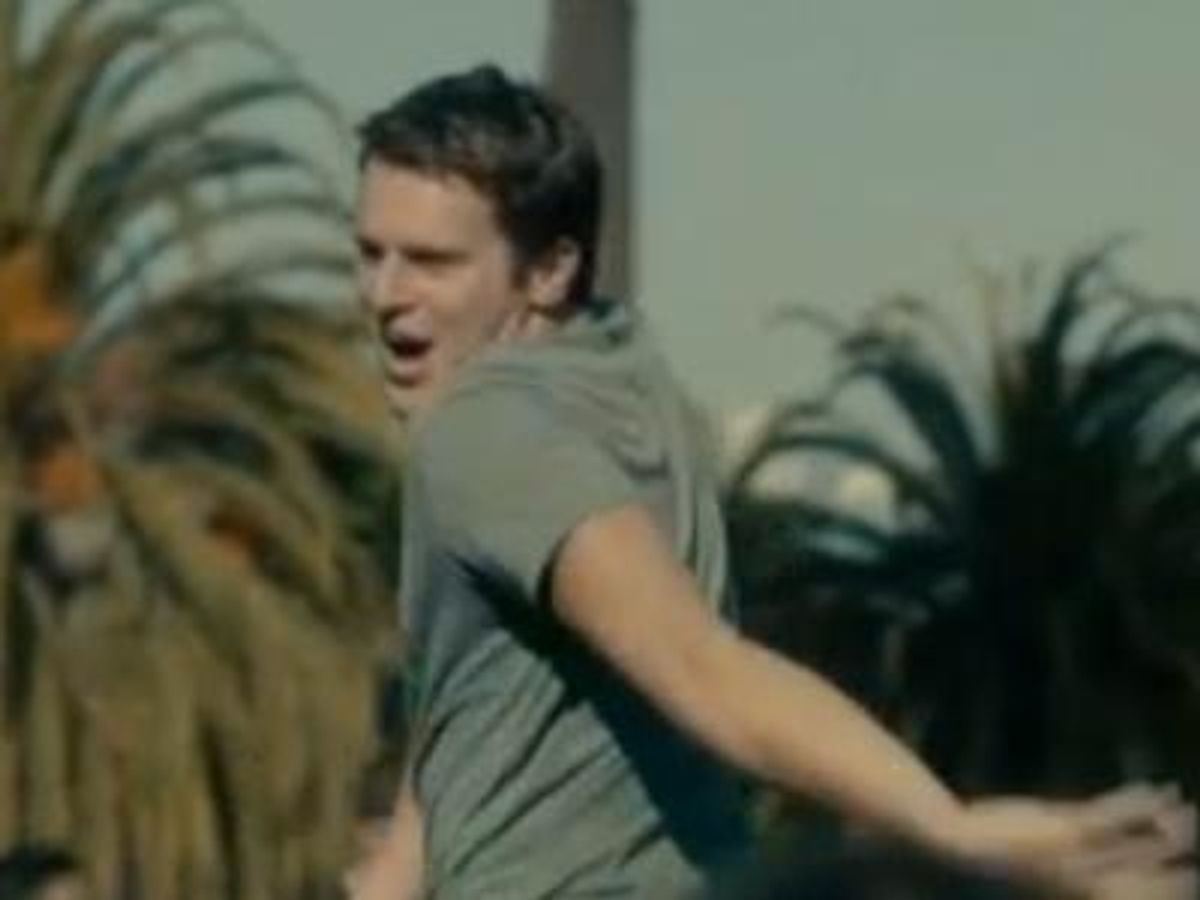

 Looking is quality television. Centered on three gay men seeking fulfillment in San Francisco, its characters are recognizable and its situations mostly plausible (*cough* weird hooker subplot *cough*). The no-frills cinematography captures the beautiful grit of city life, while the music is thoughtful, sometimes beautiful, and occasionally funny -- closing a languid episode with Morrissey's "Everyday Is Like Sunday" was a nice touch. Some may call it boring, but subtlety is Looking's strongest asset.
Looking is quality television. Centered on three gay men seeking fulfillment in San Francisco, its characters are recognizable and its situations mostly plausible (*cough* weird hooker subplot *cough*). The no-frills cinematography captures the beautiful grit of city life, while the music is thoughtful, sometimes beautiful, and occasionally funny -- closing a languid episode with Morrissey's "Everyday Is Like Sunday" was a nice touch. Some may call it boring, but subtlety is Looking's strongest asset.







































